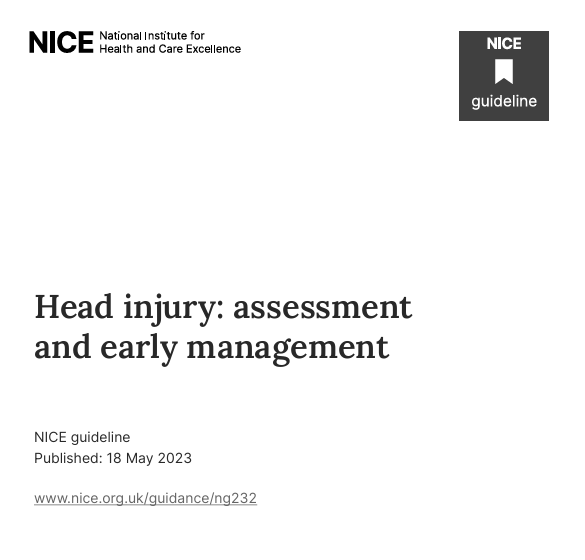What is hypopituitarism
The pituitary gland makes lots of hormones (chemical signals) that are used throughout the body. Sometimes, the pituitary gland becomes damaged or does not function as it should, which can stop these hormones being produced. This can lead to hormone deficiencies.
If the pituitary gland stops producing one or more hormones, or doesn’t make them in large enough amounts, it is called hypopituitarism. It may be that you only have low / no levels of one hormone, or it may be that more than one type of hormone is affected. The symptoms you may experience depend on which hormones are affected.
Hypopituitarism is also sometimes called ‘multiple pituitary hormone deficiency.’ This usually refers to cases of hypopituitarism where at least two different hormones are deficient.
What hormones can be affected by hypopituitarism?
There are 6 different types of hormones that may be affected by hypopituitarism. In healthy individuals, these 6 hormones are made and secreted by the pituitary gland into the blood, where they go on to have important effects throughout the body.
1. Growth hormone
GH is needed for growth and development (in children) and supports the body’s metabolism. It is particularly important in children and young people, where a lot of growth happens. It is also important for bone strength and in maintaining general wellbeing.
2. Luteinising hormone (LH) and follicle-stimulating hormone (FSH)
These hormones are known as ‘gonadotrophins’ and they are needed for the development of the sex and reproductive organs.
For people assigned female at birth, these hormones cause the ovaries to release oestrogen and produce eggs. For people assigned male at birth, these hormones stimulate the testes to produce testosterone and sperm. These hormones are therefore important for fertility, and a deficiency in these hormones can lead to fertility issues.
3. Adrenocorticotropic hormone (ACTH)
ACTH is released by the pituitary gland into the blood, where it travels to the adrenal glands and causes them to release cortisol. Cortisol is essential for helping the body respond to stress and regulate other things like blood pressure, blood sugar and the immune response. ACTH deficiency can therefore lead to a lack of cortisol
4. Thyroid-stimulating hormone (TSH)
TSH acts on the thyroid, which is a gland in the neck. TSH causes the thyroid gland to make thyroxine which is important in the body’s metabolism.
5. Arginine vasopressin (AVP)
This is sometimes called antidiuretic hormone (ADH) and is needed to regulate levels of water in the body. It does this through telling the kidneys how much water to take out of the blood and how much water to release through the urine.
6. Prolactin
Prolactin causes the breasts to produce milk. This hormone is secreted in large amounts during pregnancy and breast-feeding but is present at all times in both men and women, in small amounts.
Having low prolactin levels alone does not always mean that someone has hypopituitarism. Prolactin levels are affected by many factors, such as stress or medications, so it may be that something else is causing low prolactin.
What are the symptoms of hypopituitarism?
The symptoms of hypopituitarism will vary depending on which hormones are deficient. Some of the common symptoms experienced with each deficiency are listed below. It is important to note that symptoms of hypopituitarism vary widely among different people, both in severity and the number of symptoms experienced.
- Being very short (this is seen in children)
- Poor muscle strength, causing feelings of weakness and fatigue. You may also find it difficult to exercise
- Low bone mineral density, which can cause weak bones. You may break bones often
- High cholesterol levels in the blood
- Alteration in quality of life (symptoms vary but may include anxiety and depression)
- Feeling very tired
In people assigned female at birth, symptoms can include:
- Less frequent (or absence of) menstrual periods (known as oligomenorrhoea or amenorrhoea)
- Low libido (sex drive)
- Infertility
- Low bone mineral density (osteoporosis)
In people assigned male at birth, symptoms can include:
- Low libido (sex drive)
- Low mood
- Loss of hair on the face, body and pubic area
- Poor muscle strength
- Low bone mineral density (osteoporosis)
- Anaemia
- Impaired sexual function
In children, this can cause delayed puberty.
- Tiredness
- Low blood pressure
- Frequent infections that take a long time for the body to clear
- Nausea, vomiting or stomach pain
- Confusion
- Tiredness
- Weight gain
- Dry skin
- Constipation
- Sensitivity to cold or finding it difficult to stay warm
- Extreme thirst no matter how much you drink
- Frequent urination (weeing a lot more than usual)
- Very pale, sometimes clear, urine (wee)
- Headaches
- Signs and symptoms of dehydration (such as feeling shivery, nauseous, exhausted, having a dry mouth, cracked lips, dry eyes and skin
- Weight loss
- Difficulty eating
What causes hypopituitarism?
There are many possible causes of hypopituitarism. These are listed below.
1. Benign (non-cancerous) tumour in the pituitary gland
This is the most common cause of hypopituitarism. The tumour may put pressure on the pituitary gland, causing it to stop working correctly and therefore stop producing hormones normally.
2. Surgery or radiotherapy
In some cases, the surgery or radiotherapy used to treat a pituitary tumour may actually cause damage to the pituitary gland, which can lead to hypopituitarism. The pituitary gland is very small and surgery or radiotherapy in this area can be difficult to do accurately.
3. Cysts in the pituitary gland
As well as tumours in the pituitary, cysts can also occur. A cyst is different to a tumour as it is a sac that is filled with fluid, air, tissue or other material, whereas a tumour is usually solid tissue. Cysts can also put pressure on the pituitary gland and cause it to stop working properly. Rathke’s cleft cysts are a type of pituitary cyst that may do this. You can read more about Rathke’s cleft cysts here.
4. Benign tumours around the pituitary gland
Tumours in the area around the pituitary gland are less common than tumours in the pituitary gland, but they can have the same effect. Examples of this type of tumour include craniopharyngiomas and meningiomas.
5. Serious head injuries
Hypopituitarism can occur as a result of serious head injuries. We recommend you contact your GP if you experience any of the following symptoms that persist for 12 months following a head injury: headaches, feeling sick, problems with concentration, tiredness, problems sleeping, lack of appetite, sexual or fertility issues, depression, increased thirst or urinating a lot more than usual.
6. Lack of blood flow to the pituitary gland, or bleeding in the brain
If too little blood reaches the pituitary gland, this can cause areas of tissue to die off and damage the gland. Reduced blood flow can happen as a result of things like strokes, or severe bleeding elsewhere. One example of this is Sheehan’s syndrome, a pregnancy-related condition, where severe blood loss during childbirth causes lack of blood flow to the pituitary gland and results in hypopituitarism. For more information on Sheehan’s syndrome, please see our Sheehan’s syndrome page.
Similarly, bleeding into the pituitary gland (apoplexy) can also damage the tissue, leading to hypopituitarism. You can read more about pituitary apoplexy here.
7. Inflammation
Inflammation (swelling) of the pituitary gland, known as hypophysitis, can be caused by abnormal immune responses and can damage the gland. An example of this is lymphocytic hypophysitis. This is an autoimmune condition where white blood cells (lymphocytes) enter the pituitary gland and cause inflammation. It is not fully understood why this happens and it can happen to anyone but is most commonly seen during pregnancy.
8. Genetics
Congenital (present from birth) hypopituitarism can be caused by genetic defects that mean the pituitary gland does not develop properly during development. This can lead to partial (some hormones affected) or full (all hormones affected) hypopituitarism.
9. Infections
Infections in, or around, the brain can damage the pituitary gland and cause hypopituitarism. These infections can include things like meningitis or sarcoidosis.
10. Medications
Long-term use of some medications, such as glucocorticoids (prednisone and dexamethasone), can supress pituitary function and lead to hypopituitarism. Other medications, like some cancer treatments, have also been seen to cause hypopituitarism.
How is hypopituitarism diagnosed?
If hypopituitarism is suspected, you will have blood tests to measure the levels of hormones in your blood.
Blood tests
Some hormones can be measured with a simple blood test. However, this test will often need to be done first thing in the morning. This is because the levels of many pituitary hormones are highest in the morning, so a morning test will be the most accurate. In some cases, you may need to fast (avoid eating or drinking) for a few hours before a blood test. Your GP or endocrinologist will tell you if you need to do this.
Stimulation tests
Other hormones, such as growth hormone, usually have very low levels in the blood that would not show in a normal blood test. To test this, you would have a ‘stimulation test’. This involves stimulating the body to release growth hormone and then measuring how much hormone is released. This measures how effectively the body is producing hormones in response to the stimulus.
There are different types of stimulation tests that are used, depending on which hormone is being measured. Sometimes, stimulation tests are used to confirm the results from blood tests, where low hormone levels may be present but it’s not certain if there is a deficiency.
Other tests
For some deficiencies, like AVP deficiency, you may also have additional tests, such as urine tests. You can read more about this on our AVP deficiency diagnosis page.
Treatment for hypopituitarism
Treatment usually means replacing the hormones that are missing. The method for doing this depends on which hormones are being replaced, but it can involve tablets, injections, patches or gels.
Usually, the hormones you are treated with are synthetic forms of hormone that your body normal produces. Sometimes, you will be given a slightly different form of the hormone that is missing. Some examples of hormone replacements include:
| Hormone replacement treatment | Who needs it? | How it’s given |
| Levothyroxine (replaced thyroxine) | People with TSH deficiency | As a tablet, taken first thing in the morning on an empty stomach |
| Somatropin (replaces growth hormone) | People with GH deficiency | Given as a daily or weekly injection |
| Oestrogen | People with FSH or LH deficiency | Oral tablet or patch to put on skin. Can also be applied as a topical gel |
| Testosterone | People with FSH or LH deficiency | Usually a gel that is applied to the skin (preferred option). Can also be given as an injection, which lasts longer |
| Glucocorticoids, such as hydrocortisone, Plenadren®, Efmody® (replaces cortisol) | People with ACTH deficiency | Replaced using hydrocortisone tablets taken 2–3 times a day. Also given as emergency injection during times of increased need. See our emergency info page |
| Desmopressin / DDAVP (replaces vasopressin) | People with AVP deficiency | Can be taken as a tablet, oral wafer that melts on the tongue or a nasal spray. In hospitals, it can also be given as an injection under the skin |
Understanding hormone replacement therapy
For most people, hormone replacement therapy is life-long. This can be difficult to come to terms with at first, but we have lots of resources and support available to help you understand these treatments and work them into your normal life. Normally, there aren’t any side effects with hormone replacement therapy, as the treatment is just replacing what your body would naturally produce.
It is important to note that once you are taking hormone replacement medications, you will need ongoing blood tests and monitoring to make sure the levels you are taking are right for you.
The amount of hormones you need may vary throughout your life, so your treatment is usually adjusted to account for this. For example, elderly people are unlikely to be given replacement sex hormones (although there is no upper age limit to being prescribed these) and people treated with oestrogen may find that this is discontinued once the average age of menopause is reached.
Frequently asked questions about hormone replacement therapy
It depends on the medication – growth hormone normally needs to be kept in the fridge, unless it is the single use, pre-filled syringe version (Genotropin MiniQuick®). Other pituitary hormone medications don’t need to be kept in the fridge but check with your doctor or pharmacist for full storage details.
For most people, it is fine to drink alcohol while taking hormone replacements and you may continue to drink in line with general guidance around recommended limits for adults.
It is common to feel a swing of emotions with a pituitary condition. Treatment, tests and having to take regular medication can all affect how you feel. Unfortunately, hormone replacements will not be able to exactly mimic how the pituitary gland produces hormones, if it was working properly. Our support services can offer you additional guidance on this.
You should still continue taking your hormone replacements even if you are unwell, unless your doctor or specialist advises you otherwise. If you are taking hydrocortisone, you may need to increase your dosage if you are unwell. This is called the ‘Sick Day Rules ‘. You can read more about the Sick Day Rules here.
Missing the occasional dose is unlikely to cause any problems or affect your treatment. If you do miss a dose, just continue taking your medication as normal and do not double your dosage to make up for the missed dose.
People with pituitary conditions often need to take multiple hormone replacement medications, and these can sometimes interact with each other. Hormone replacement medications can also interact with other medications that you may be taking, such as steroids or hormonal birth control. You can read about possible interactions here.











